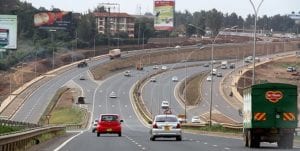 Transport infrastructure – road, rail, shipping and air cargo – will be a vital ingredient of the free trade agreement that 26 Africans countries are rapidly finalising.
Transport infrastructure – road, rail, shipping and air cargo – will be a vital ingredient of the free trade agreement that 26 Africans countries are rapidly finalising.
Van Niekerk adds that the work of the association is guided by a four-year strategic plan which is aligned to the needs of member countries.
For the 2016-2019 cycle, PIARC has packaged its activities and research under five strategic themes: Management and Finance, Access and Mobility, Safety, Infrastructure, as well as Climate Change, Environment and Disasters. These themes represent a continuation of work that remains at the core of the body’s interest. As such, one of the task forces focuses on innovative finance, under the management and finance theme and is currently at work on identifying, reviewing, and evaluating alternative, available road funding and financing models which include tolling, public-private-partnerships, use of credit assistance tools and bonds. “This work is particularly significant considering funding sources have not always kept pace with road investment needs,” van Niekerk says. In terms of PIARC’s focus on finding solutions for Africa, the African Regional Task Force is addressing two topics in this current four-year cycle: Design Standards for the African Highway Network and Updating Design Standards for Rural Roads. In line with this, Sanral is presenting a seminar in October entitled “Road Tunnels in Low and Medium Income Countries”, as part of its road tunnel operations. Contributing scarce skills necessary to grow South Africa’s knowledge economy, the seminar welcomes speakers covering a wide range of road tunnel operation subjects from safety design and operations of tunnels, sustainable funding for safe tunnels and tunnel construction choices. The task force’s technical visit and case studies will cover The Huguenot Tunnel Project which constitutes a major transportation link between the coastal plains of the Western Cape and the interior and is one of the most strategic infrastructure assets of the National Road Network in South Africa. The 3.9 km long tunnel reduces the distance between Paarl and Worcester by 11 km and eliminates a climb of some 500 m over the Du Toits Kloof Pass, which by its nature imposes severe constraints and safety concerns for the road user. A total of 19 representatives from Sanral serve on various technical committees. These drive the study and development of knowledge products in areas such as intelligent transportation systems, transport system economics and social development, environmental considerations in road projects and operations, as well as design and operations of safer road infrastructure.






